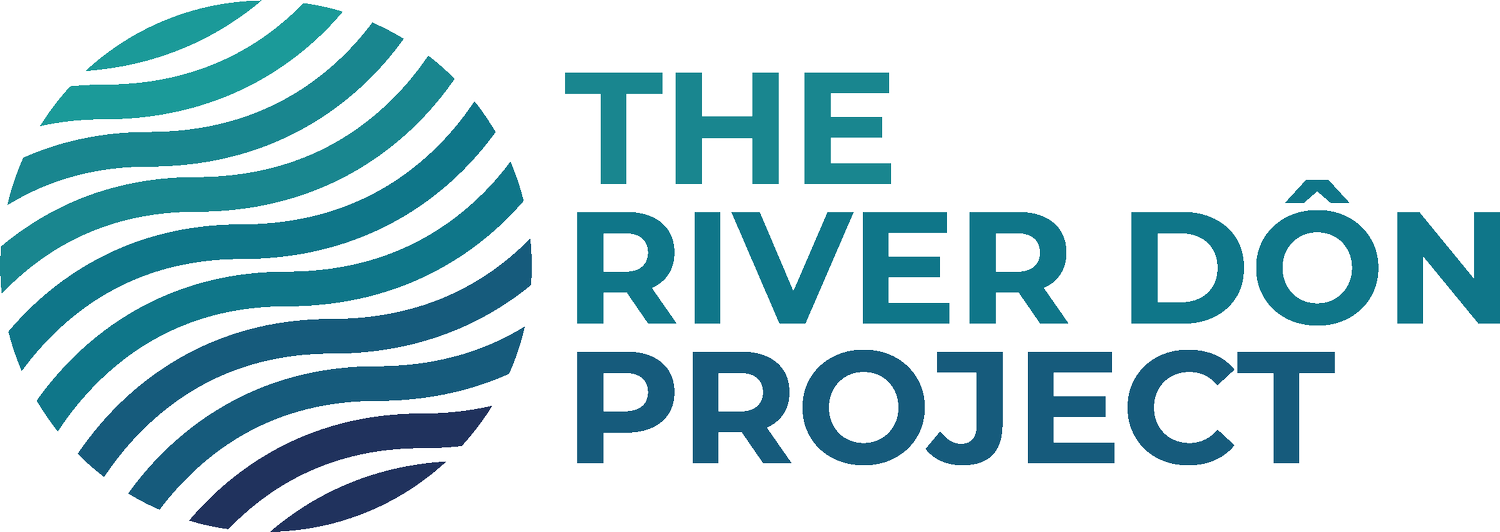‘The river is always communicating‘ ~ Amy Carter Gordon
Amy Carter Gordon in collaboration with Alban Krashi & Jonny Douglas: The River Dôn Project
I live and work in close proximity to the River Sheaf, a tributary of the Dôn. Within this biotic community, I hear the 5am calls of a Tawny Owl and witness the underside of a heron’s wingspan as it flies past my window. A fox makes its den close by and bats appear as the evenings lengthen. All the while, the river dramatically surges and overspills, trickles and meanders in response to the peaks and troughs of our seasons. This life, sustained by the river, nourishing all within it, nourishes me and is a part of my creative practice, where I daydream and marvel at its changes; where inspiration readily finds me.
Many people talk of a journey when they begin a project. It is the absolute aliveness of the River Dôn Project (RDP) that captures my imagination and holds it intently – and the propensity for Sheffield Hallam researchers to interact with it are boundless. We are currently collaborating through trans-disciplinary methods including arts, culture, biomolecular and citizen science and through policy research. As diverse as our subject areas, we are united in our desire to apply research and innovation to real-world challenges – and what better way than through a demonstrator in our own region.
Over the last three years, the project has become increasingly embedded in our locality and on a personal level merging seamlessly into other areas of my work – a positive challenge to my preconceptions about what constitutes co-curation and co-production.
Alighting on the title fæthm (fathom) and referencing the opening of an embrace, the depth of our understanding as well as the more common definition of a measurement of the depth of water, felt fitting for a curation in a constant dynamic with its audience, inhabitants, human and more-than-human actors.
The River Dôn is a barometer for all life in the region. Flowing as it does through Sheffield, Barnsley, Rotherham and Doncaster, it is always communicating with us – but perhaps we have not always had the tools to listen or taken the time to understand. Emergent, complex topics such as the rights of nature, hold at their core opportunities for open dialogue and internal contemplation. A growing movement in response to the climate crisis, the rights of nature move away from treating nature as property or viewing it through an extractive lens into ‘acknowledging that nature and all its life forms have the right to exist, persist, maintain and regenerate its vital cycles.’
fæthm is offered as a series of provocations to consider our enmeshment with the river, the biosphere and the results of human actions drawing us closer to climate breakdown. As such, may this serve as a reflexive work in progress?
My role in the group is to create opportunities for researchers to exchange knowledge with communities and stakeholders to play with new ways of thinking about and being with nature. All that we do derives from a place of valuing the intrinsic knowledges of all the actors in the space.
It continues to be a steep learning curve – my friends and collaborators at Opus Independents are much further down the line in their understanding of the future rights of nature. There has been a much-valued deep sharing and generosity of spirit in bringing myself and others into new ways of thinking about being-with nature. Jonny Douglas states, ‘If we can’t surface, we can’t sense into and experience the complex relationships and we can’t visualise viable alternative ways of being’.
CLICK HERE to read the full blog
